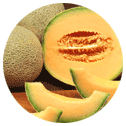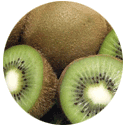Types of Vitamins
Vitamins organic food substances are found
only in living things, i.e. plants and animals.
They are very essential for our bodies to
function properly, for growth, energy and
for our universal happiness. With very few
exceptions the human body cannot produce
or synthesize vitamins. They should be supplied
in our diet or in man-made dietary supplements.
Some people believe that vitamins could
also replace food, but that is incorrect.
In fact, vitamins cannot be incorporated
without also ingesting food. That is why
it is greatest to take them with a meal.
Synthetic vitamin supplements could be of
varying quality, so it is a good idea to
get your supplements from a consistent source.
The information is gathered from United
States Department of Agriculture (USDA)
Food & Nutrition Center.
Vitamin A helps in cell reproduction. It
also inspires immunity and is required for
formation of some hormones. Vitamin A helps
vision and also promotes bone growth, tooth
development, and helps preserve healthy
skin, hair, and mucous membranes. It has
been shown to be an efficient preventive
against measles. Deficiency of vitamin A
could cause night blindness, dry skin, poor
bone growth, and weak tooth enamel. Alpha-carotene,
beta-carotene and retinol are all descriptions
of Vitamin A.
Vitamin B1/thiamine is significant in the
production of energy. It helps the body
cells exchange carbohydrates into energy.
It is also necessary for the functioning
of the heart, muscles, and nervous system.
Not getting enough thiamine could even leave
one exhausted and weak.
Note: Most fruits and vegetables are not an important source of thiamine.
Note: Most fruits and vegetables are not an important source of thiamine.
Vitamin B2 or riboflavin is vital for body
growth, reproduction and red cell production.
It helps in releasing energy from carbohydrates.
Note: Most fruits and vegetables are not a major source of riboflavin.
Note: Most fruits and vegetables are not a major source of riboflavin.
Niacin helps in the functioning of the digestive
system, skin, and nerves. It is also significant
for the conversion of food to energy.
Pantothenic acid is necessary for the metabolism
of food in addition to the formation of
hormones and (good) cholesterol.
B6 plays a role in the formation of antibodies
in the immune system. It helps keeping normal
nerve function and acts in the creation
of red blood cells. It is also necessary
for the chemical reactions of proteins.
The higher the protein intake, the more
want there is for vitamin B6. Too little
B6 in the diet could cause dizziness, nausea,
confusion, irritability and convulsions.
Folate and folic acid are both forms of
B9. Folate occurs obviously in fresh foods,
whereas folic acid is the synthetic form
found in supplements. Your body needs folate
to make red blood cells, plus components
of the nervous system. It helps in the formation
and creation of DNA and maintaining standard
brain function, and is a vital part of spinal
fluid. It has also been verified to decrease
the risk for an NTD-affected (neural tube
defect) pregnancy by 50 to 70 percent. Folic
acid is very important for proper cell growth
and development of the embryo. That is why
it is chief for a woman to have enough folate/folic
acid in her body both before and during
pregnancy.
Like the other B vitamins, vitamin B12 is
vital for metabolism. It helps in the formation
of red blood cells and in the protection
of the central nervous system. Vitamin B12
is the one vitamin that is obtainable only
from fish, poultry, meat or dairy sources
in food.
Vitamin C is one of the most significant
of all vitamins. It actually plays a significant
role as an antioxidant, thereby protecting
body tissue from the damage of oxidation.
Antioxidants act to defend your cells against
the effects of free radicals, which are
potentially damaging by-products of the
body’s metabolism. Free radicals could
also cause cell damage that may contribute
to the development of cardiovascular disease
and cancer. Vitamin C has also been found
by scientists to be an efficient antiviral
agent.
Vitamin D is known as the "sunshine
vitamin" as it is manufactured by the
body after being exposed to sunshine. Ten
to fifteen minutes of good sunshine three
times weekly is sufficient to produce the
body's requirement of vitamin D. This means
that we don't require obtaining vitamin
D from our diet unless we get extremely
little sunlight – usually not a problem
for children. Vitamin D is vital to the
human body as it promotes incorporation
of calcium and magnesium, which are necessary
for the normal development of healthy teeth
and bones. It also helps maintain ample
levels of calcium and phosphorus in the
blood.
Like vitamin C, vitamin E plays a important
role as an antioxidant, thereby defending
body tissue from the damage of oxidation.
It is significant in the formation of red
blood cells and the use of vitamin K. Many
women also use it to assist reduce the appearance
of wrinkles, and mothers use it to help
mend minor wounds without scarring, as it
is valued for its ability to calm and heal
broken or stressed skin tissue.
Vitamin K is fat soluble and plays a vital
role in blood clotting. It regulates blood
calcium levels and activates at least 3
proteins concerned in bone health.















